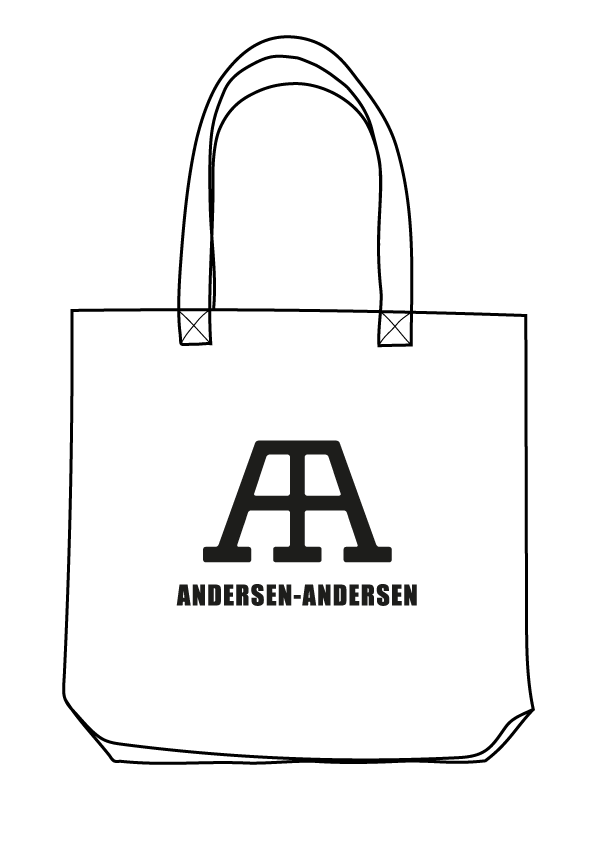-
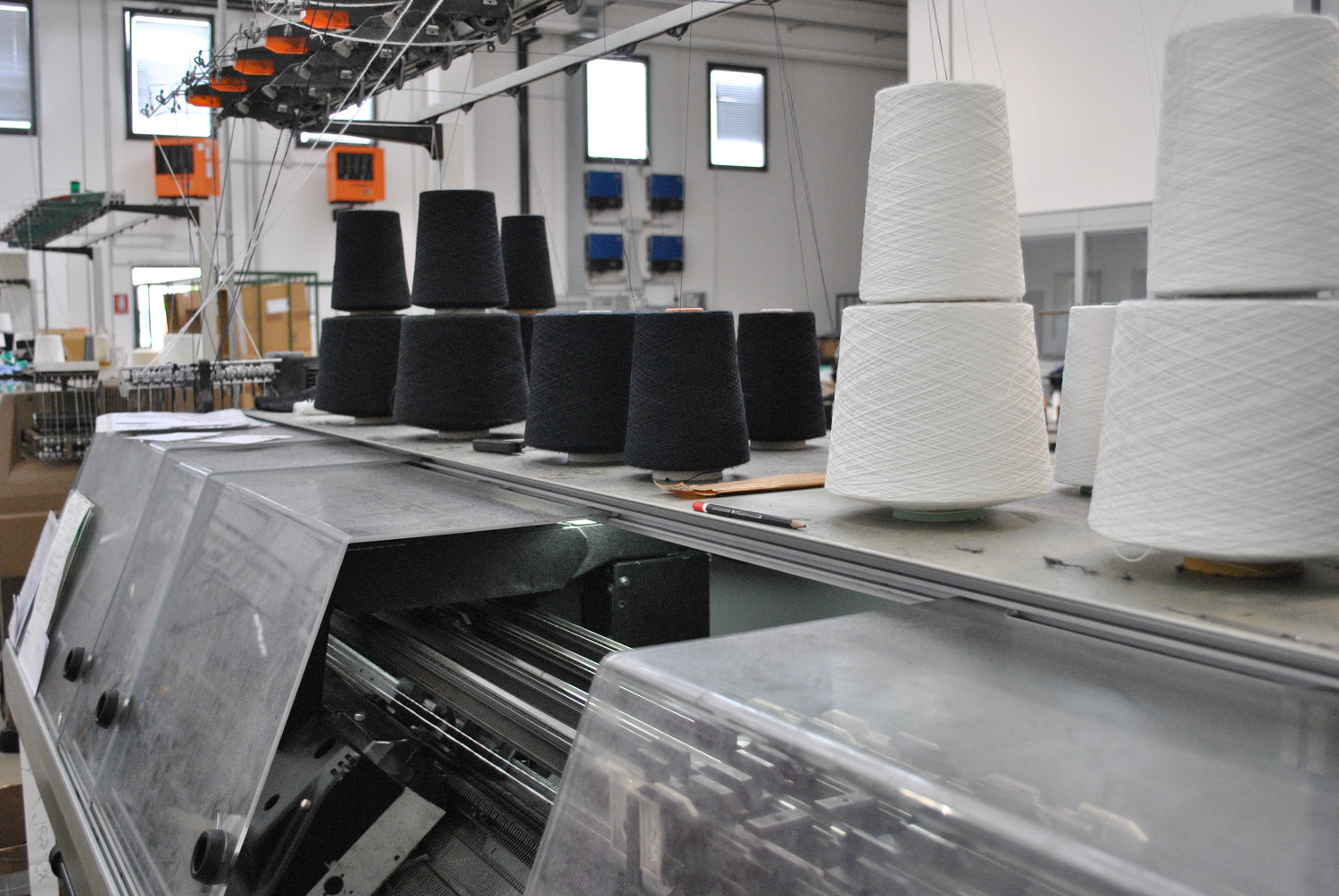
Our Knitting Mill
We produce our garments at a mill in the Veneto region of northern Italy that employs only the most highly skilled knitters. Everything is knitted on flat knitting machines in gauges 5, 7, or 12 depending on the style. We knit as compactly as possible to ensure maximum durability. Every part of every garment is fully fashioned, which means they are knitted in shape. This keeps waste to a minimum and increases the garments’ longevity as there are no raw edges to unravel. Production at the mill is powered almost entirely by solar energy.
Read more -
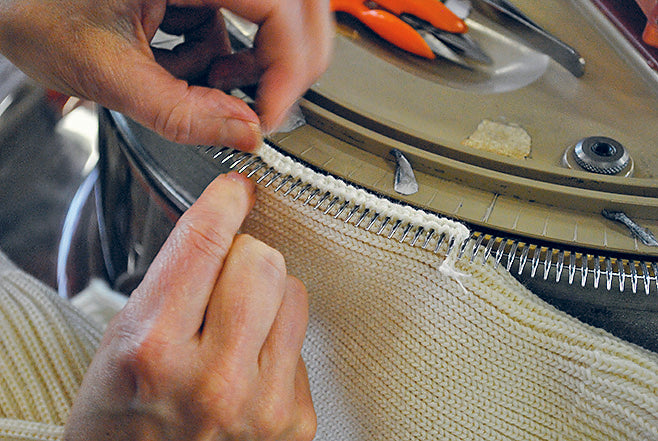
Linking Our Garments
Linking is a process in which each garment is knitted together on specialised linking machines. To ensure the perfect match, the linker creates each layer loop by loop on the machine. It’s a painstaking, highly skilled process but it ensures the seams of every garment are both more flexible and durable. And it’s why the seams of every Andersen-Andersen garment are guaranteed to last a lifetime. After linking, bar-tack stitches are attached to further strengthen and reinforce.
Read more -
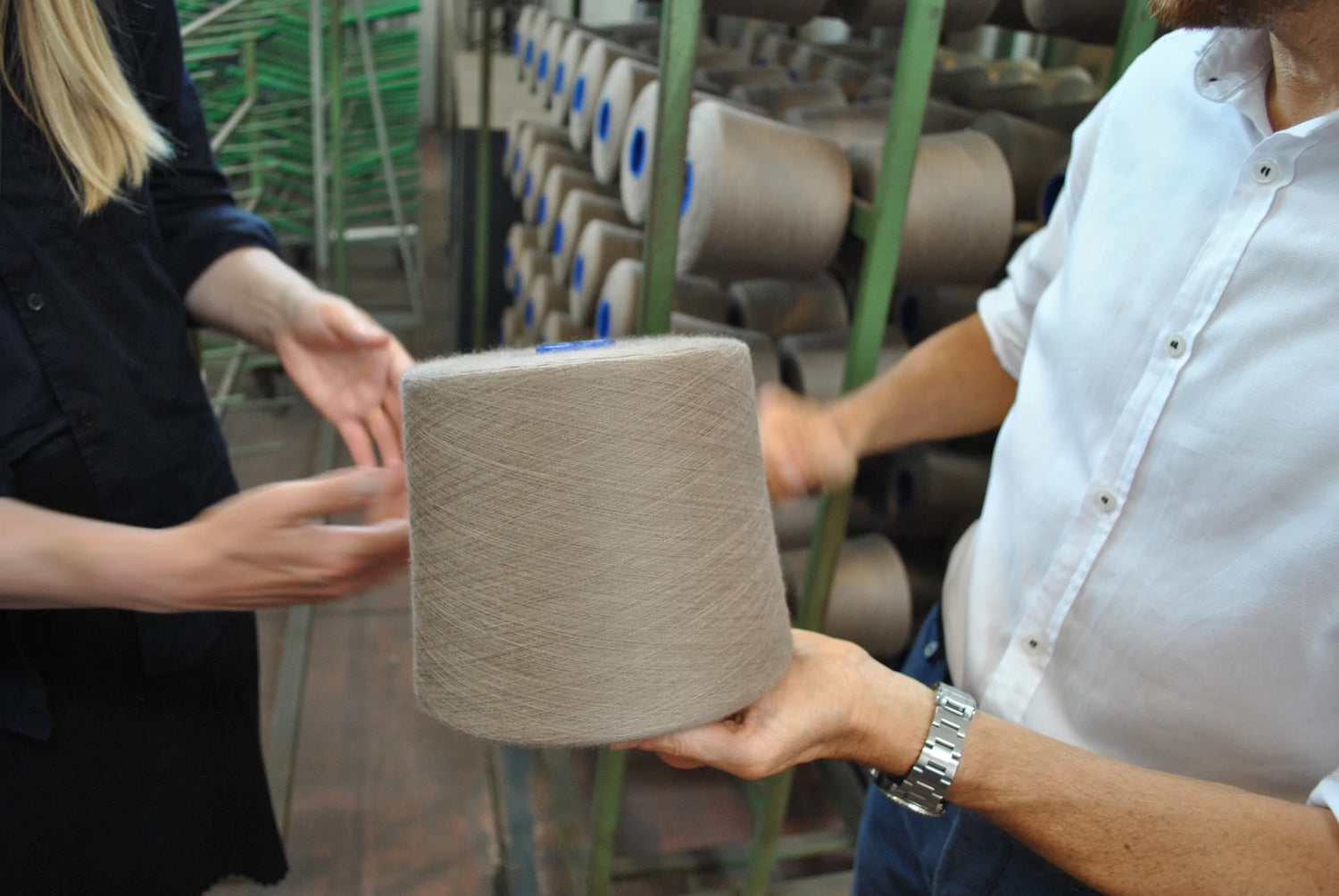
Uncompromising Quality Control
While we have quality control measures throughout production, the final stage is a close inspection of the garment over a purpose-built lamp. This helps reveal any inconsistencies and ensures that every piece that reaches the market is perfect. The inner labels are then attached and the garment is steamed and inspected one last time. Finally, the hang-tags are attached, and the garment is packed ahead of its onward journey out into the world.
Read more -
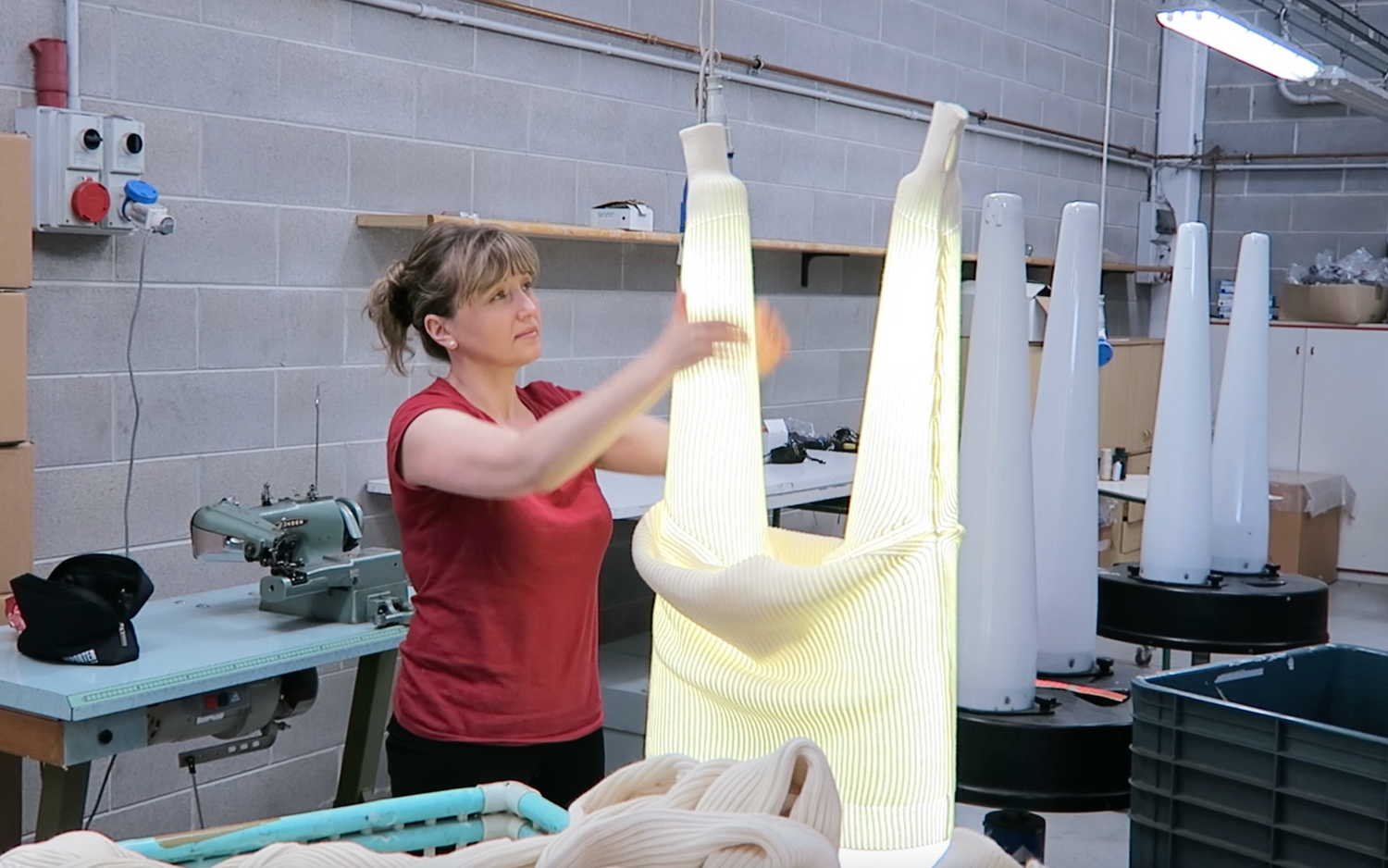
Production Videos
Have you ever wondered what it takes to make an Andersen-Andersen sweater? Producing quality garments is a tremendous task requiring highly skilled craftspeople. This is why we produce at a family-run mill in Northern Italy. First, our specialized signature yarn is threaded onto industrial flatbed knitting machines, the knitting style is selected, and the process begins. Every part of every garment is fully fashioned, which means they are knitted in shape. This keeps waste to a minimum and increases the garments’ longevity, as there are no raw edges to unravel. Linking is a process in which each garment is knitted together on specially engineered linking machines. To ensure the perfect match, the linker attaches each layer loop by loop on the machine. It’s a painstaking, highly skilled process but it ensures the seams of every garment are both more flexible and durable. After linking, bar-tack stitches are added to further strengthen the garment. These are reinforcing stitches on joints where there tends to be more wear. We typically use bar tacks on thumbholes and shoulder seams. The inner labels are then attached, and the garment is steamed and inspected. While we have quality control measures throughout production, the final stage involves a close inspection of the garment over a fitted detection lamp. This helps reveal any inconsistencies and ensures that every piece that reaches the market is perfect. Finally, the hang-tags are added, and the garment is packed ahead of its journey out into the world.
Read more
Something went wrong, please contact us!
Total
